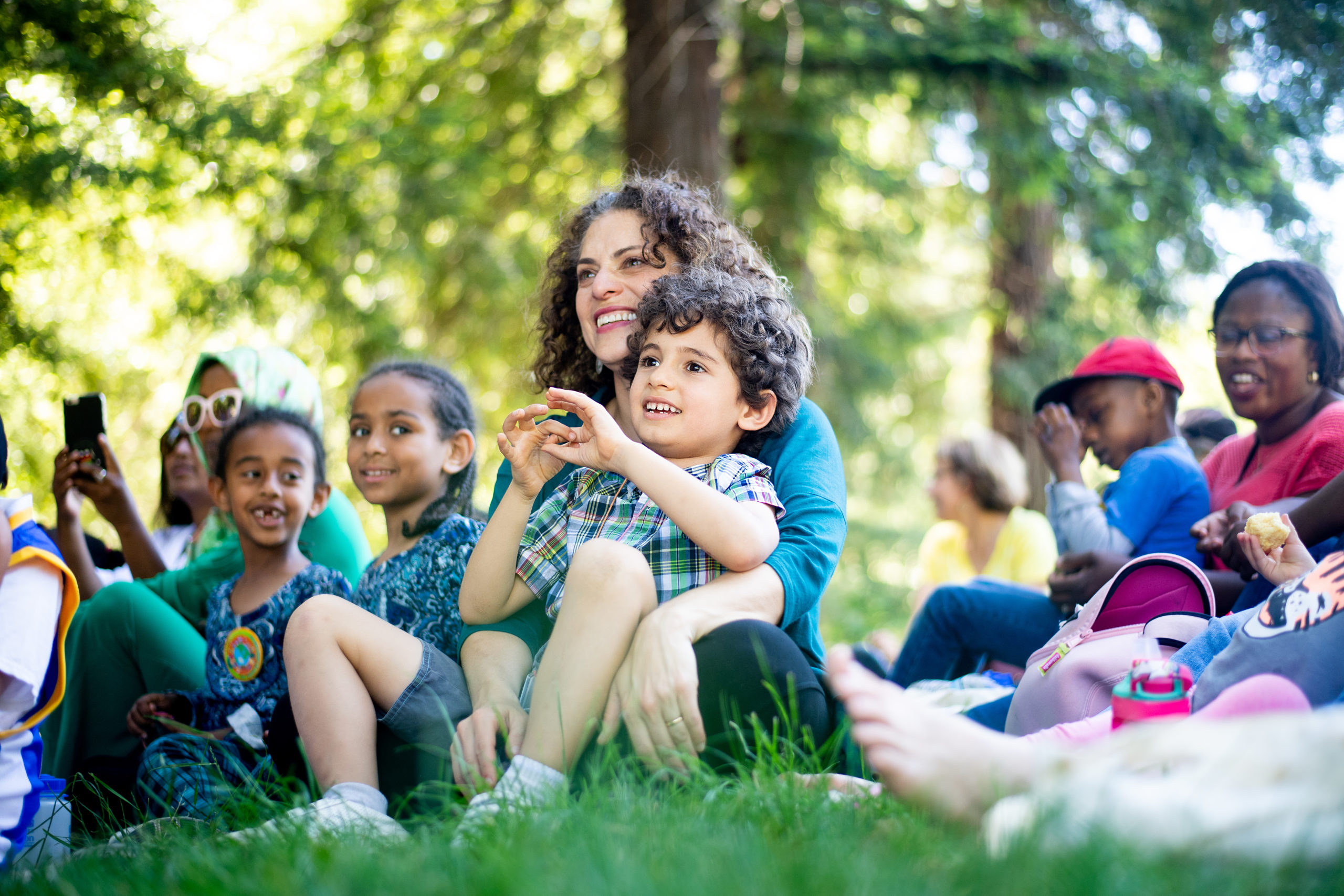As the sky fell into complete darkness, the stars came into full brilliance. It was the middle of the day, but a teenage Nooshin Razani was witnessing a total solar eclipse above Iran’s Gahar Lake. “It was one of the most amazing experiences of my life,” says Razani, who was partially raised in Iran. “It made me understand that I was connected to something much bigger than me and gave me a deeper connection to the people around me.”
Razani is now the founder and director of the Center for Nature and Health at UCSF Benioff Children’s Hospital in Oakland, which was established in 2016 on the premise that health and equity are improved by increasing access to nature. A pediatrician at the Oakland hospital, she prescribes nature experiences to Bay Area children who have experienced adversity, such as homelessness, who live with chronic diseases, or who struggle with social isolation. Her work has contributed to a growing body of research that has shown the physical and mental health benefits of providing children with outdoor playtime, and she has seen firsthand the positive impact that nature has had on the children and families that she serves.
Today, amidst the COVID-19 pandemic, Razani’s work has never felt more urgent. Her team is researching how the virus is transmitted outdoors, creating a toolkit for the California Department of Health Care Services to help address early childhood adversity through nature, and piloting a nature-based intervention for pediatric anxiety.
The center also runs a nature prescription program developed in partnership with UCSF Benioff Children’s Hospital Oakland and East Bay Regional Parks District. After six years of conducting group outings to East Bay parks, the COVID-19 outbreak forced the program to temporarily move online in March. But with the support of the San Francisco Foundation, the program has organized virtual outings led by expert guides who hold live readings of children’s books that explore what kids can experience when they venture outdoors. Due to COVID-19-related clinical limitations, fewer outdoor prescriptions have meant a drop in online participation compared to outdoor outings. What’s more, many patients don’t have stable internet connections, further limiting their remote engagement.
Given these temporary limitations, the center has doubled down on its advocacy work to ensure that nature experiences are inclusive, and free from racism and hate. It is demanding more equitable access to nature near people’s homes, such as keeping parks open as essential services, and calling for more trees to be planted in neighborhoods that have little coverage. In Oakland, for example, nearly half of the majority-white District 4 is covered by tree canopy, compared to just 6 percent of the diverse District 3, which includes West Oakland and parts of downtown. In San Francisco, about one third of the majority-white Presidio and Seacliff neighborhoods are covered by tree canopy, compared to just 5 percent or less of the diverse Sunset, Downtown and SoMa neighborhoods.
Razani says that the pandemic has further magnified the clinical need for kids to get outdoors. “When you play in nature, you can create anything you want. You can connect with other people, with animals and other life, and feeling connected is important for your health,” she says.
“People want a release from unprecedented levels of stress right now, and they understand that nature is part of the equation.”
Nature has always been an integral part of Razani’s connection to her family, community and planet. And she fervently believes in its ability to help us weather the greatest crisis of our lifetime. Says Razani, “Nature can get us through this.”
The Center for Nature and Health at UCSF Benioff Children’s Hospital receives funding from the San Francisco Foundation’s donor-supported Youth Access to Nature Fund.


